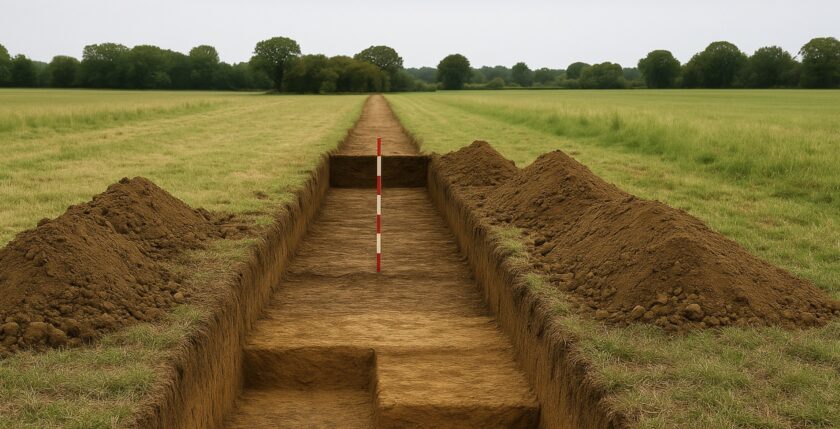Archaeology checks ordered for Flintshire section of HyNet CO₂ pipeline

An archaeological investigation plan has been submitted to Flintshire County Council as part of preparations for the HyNet North West carbon dioxide pipeline.
The Written Scheme of Investigation (WSI), submitted by United Living Infrastructure Services on behalf of Liverpool Bay CCS Ltd, outlines the approach for trial trenching along the Flintshire section of the proposed CO₂ pipeline.
The project, part of the wider HyNet industrial decarbonisation scheme, involves the construction of a new underground pipeline to transport captured carbon dioxide for offshore storage.
The pipeline route passes through Flintshire, from Sandycroft to the Point of Ayr.
Under the Development Consent Order granted in 2024, no construction work affecting potential buried archaeological assets can begin until a WSI is approved.
The scheme submitted to the council includes a programme of targeted and sampled trenching to evaluate any archaeological remains along the proposed pipeline corridor.
A total of 79 trenches have been identified to target features revealed by earlier geophysical surveys, with 34 still to be excavated.
In addition, 242 trenches will be dug as part of a 2% sample of the working width of the pipeline corridor.
The archaeological contractor will carry out excavation, recording, and post-excavation analysis, in consultation with the Clwyd-Powys Archaeological Trust (Heneb) and Cadw.
The written scheme confirms that prior liaison with these bodies has already taken place.
Findings from earlier investigations along the pipeline route in Flintshire revealed a Bronze Age pottery pit near Pentre Halkyn, seventeenth-to-eighteenth-century refuse pits near Ewloe Green, and extensive remains of historic field systems.
Deep peat layers and palaeochannels were also identified, suggesting potential for preserved environmental and archaeological material.
The project’s environmental assessment recognises the area’s archaeological potential, including evidence of prehistoric funerary landscapes, Roman coins and pottery, and post-medieval industrial activity linked to coal mining and lead processing.
In a covering letter to Flintshire’s planning department, United Living stated: “Pre-submission communication has been undertaken with the County Archaeologist to discuss the proposed archaeological written scheme of investigation.”
The company has requested formal written approval from the local planning authority.
The scheme will also be submitted in parallel to Cheshire West and Chester Council, with separate assessments to cover that section of the pipeline.
The WSI notes that “the aim of the trial trench evaluation is to clarify the presence, nature, date, extent and significance of any archaeological remains that may be present within the location of the Project.”
Fieldwork, sampling, and analysis will be carried out according to industry standards set by the Chartered Institute for Archaeologists (CIfA), with artefacts and records curated by the Royal Commission on the Ancient and Historical Monuments of Wales for sites within Flintshire.
Spotted something? Got a story? Send a Facebook Message | A direct message on Twitter | Email: [email protected] Latest News









